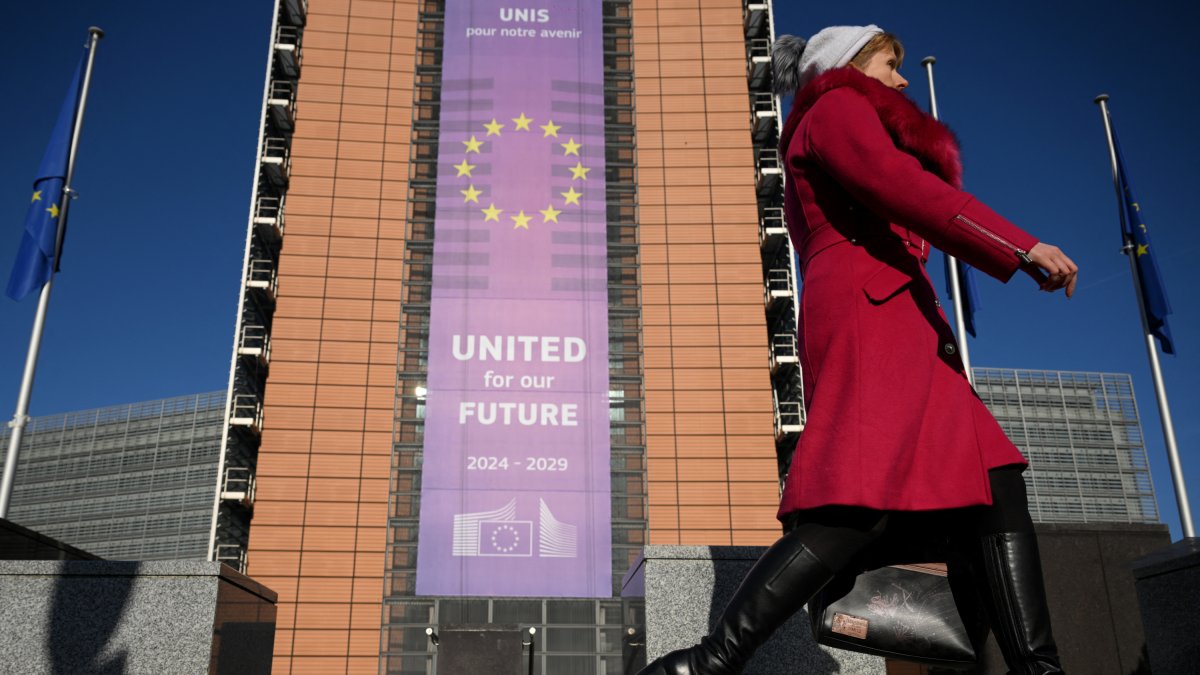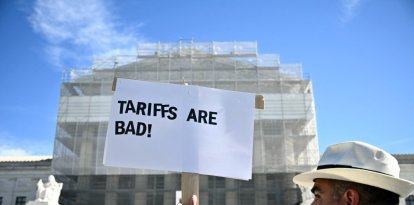Trump accused Europe of prioritizing Russian fuel spending over Ukraine's defense
Despite Western bans on Russian crude and refined products, Russia's oil exports have only declined by 8% since before the invasion.

European Union building.
This Monday President Donald Trump lashed out at the European Union (EU) by noting that "Europe has spent more money buying Russian Oil and Gas than they have spent on defending Ukraine —BY FAR!” via a post on his Truth Social account.
This blunt statement puts the spotlight on an uncomfortable reality: despite sanctions and stated support for Ukraine, Europe's energy dependence on Russia remains a significant obstacle in the context of the war that began in February 2022. Data supports this claim and reveals how the Kremlin has maintained its economic clout, even in the face of Western-imposed restrictions.
One billion dollars in profits for the Kremlin
Since the start of the conflict in Ukraine, Russia has exported fossil fuels worth close to $1 billion, according to estimates from the Center for Research on Energy and Clean Air (CREA). In the third year of the war alone, the European Union earmarked $23 billion for the purchase of Russian oil and gas, exceeding the $19.6 billion it offered as financial aid to Ukraine in the same period. This disparity highlights Europe's difficulty in disengaging from an energy source that remains economically attractive, despite geopolitical tensions.
Outside the EU, Russia's strength in energy markets also grew. China purchased $82 billion worth of Russian fuel, India $51 billion and Turkey $36 billion. In total, the Kremlin earned $254 billion in 2024 from fossil fuel exports, just 3% less than the previous year, showing that sanctions have not achieved the expected impact.
The "shadow" fleet and sanctions dodged
Despite Western bans on Russian crude and refined products, Russia's oil exports have only declined by 8% since before the invasion. How does it achieve this? The Kremlin has resorted to a "shadow" fleet of 585 tankers that conceal the origin of the fuel. Russia acquires old ships from European owners, frequently changes their flags and uses shell companies to mislead. In addition, it exports to countries without sanctions against Moscow, such as India or Turkey, which then resell the oil to the West.
CREA's analysis suggests that tighter sanctions could reduce Russian revenues by as much as 20%. In response, the EU adopted its 16th sanctions package in February 2025, specifically targeting these ghost ships. However, competitive Russian fuel prices (lower than other sources, according to Jonathan Bass, founder of Argent LNG) continue to tempt European buyers.
European dependence and the role of the United States
"Russian pipeline gas has been cheaper than LNG prices, even with the geopolitical risk, the European buyers still find Russian gas economical," Bass told Fox News.
Europe's dependence on Russian fuel is largely due to the Biden Administration's restrictions on liquefied natural gas (LNG) exports, Bass explained.
In January 2025, Biden imposed tough sanctions on 161 Russian tankers, but also maintained a pause on US LNG exports, leaving Europe in a vulnerable position.
Trump, meanwhile, upon taking office, lifted that pause by executive order on the first day, but the damage was already done. "Europeans went in and said, ‘okay, we're gonna rely on American LNG.’ But then Biden pauses it… That made the Europeans afraid of relying on America’s political swings," Bass said.
Landlocked countries like Austria face additional challenges. Until recently, they relied on pipelines carrying Russian fuel through Ukraine and Slovakia, a route that ceased operating in early 2025. "The re-gasification and distribution infrastructure isn’t optimized for importing from elsewhere. They rely on pipelines [that originate] from Russia," Bass said.
Meanwhile, the data is clear: the money Europe spends on Russia continues to outweigh its support for Ukraine, a point Trump did not overlook.


























